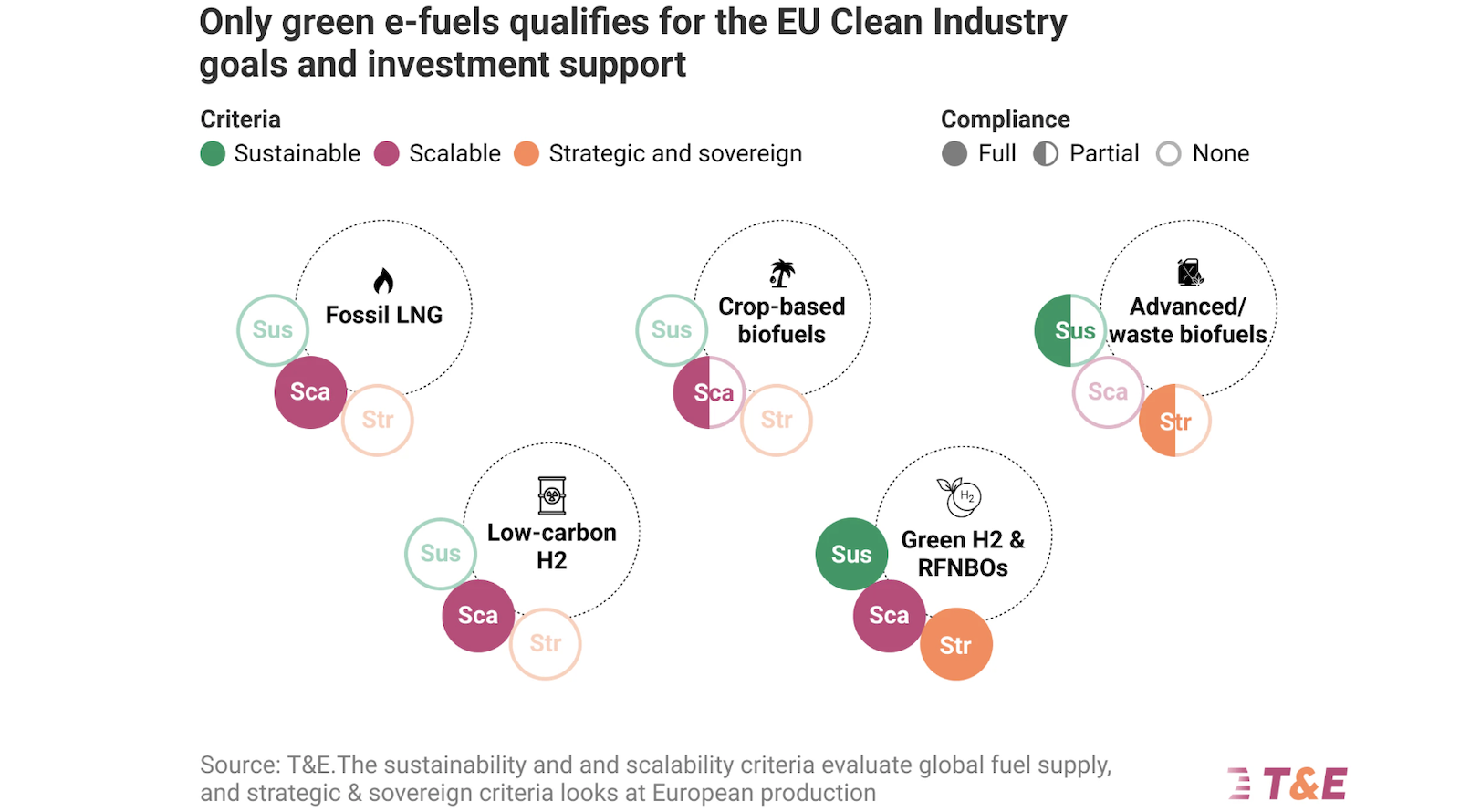Unlocking Europe's Maritime Potential: The Case for Hydrogen-Based Fuels
Key Ideas
- Homegrown renewable hydrogen-based fuels can decarbonize the shipping sector and create new job opportunities.
- The EU should prioritize sustainable, scalable, and strategic & sovereign fuels like green hydrogen and e-fuels over fossil LNG and crop-based biofuels.
- Investing in green hydrogen and e-fuels is crucial for Europe's energy sovereignty and to avoid prolonging dependence on imported fossil fuels.
- The EU Maritime Strategy and Sustainable Transport Investment Plan should focus on promoting green hydrogen and e-fuels for clean industrialization.
The European Union is strategically analyzing maritime fuels to decarbonize the shipping sector while reinforcing energy sovereignty and creating new job opportunities. The EU is urged to prioritize fuels that are sustainable, scalable, and strategic & sovereign. Homegrown renewable hydrogen-based fuels are highlighted as a key solution that can meet these criteria. Fossil LNG and crop-based biofuels are discouraged due to their failure to align with the EU's strategic and environmental goals, potentially prolonging energy dependence on imported fossil fuels. While certain European feedstocks can produce sustainable advanced biofuels, their limited availability poses a risk for the EU's industrial strategy. To achieve clean industrialization success, the EU is advised to focus on green hydrogen and e-fuels like e-ammonia and e-methanol. These fuels are deemed the most suitable options as they align with sustainability, scalability, and strategic and sovereign objectives. It is emphasized that investing in green hydrogen and e-fuels is essential for Europe's energy sovereignty and to steer clear of perpetuating reliance on imported fossil fuels. The EU Maritime Strategy and Sustainable Transport Investment Plan are recommended to prioritize the promotion of green hydrogen and e-fuels for the clean industrialization of the region.
